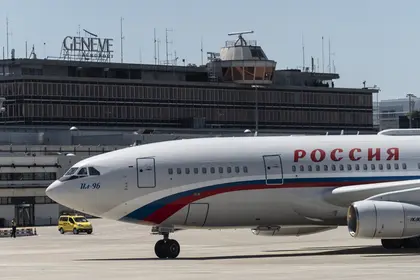A French company based in Chateauroux is continuing to supply avionics and other on-board electronics for Russian aircraft used by senior military and political figures, according to an investigation by the French newspaper Le Parisien.
The company, PGA, a subsidiary of the American group Astronics, is providing advanced systems that control various aspects of flight, from cabin lighting to communication and data transmission systems, for aircraft used by top Russian officials.
JOIN US ON TELEGRAM
Follow our coverage of the war on the @Kyivpost_official.
“For the equipment, modernization, or maintenance of aircraft of top officials and oligarchs of Russia, the Russian authorities turn to specialists from a company based in the heart of France, in Chateauroux, several thousand kilometers from Moscow,” the investigation notes.
The equipment supplied by PGA allows for secure and reliable communication for mobile phones used by Russian officials, including President Vladimir Putin, the head of the Russian Security Council Dmitry Dmitry Medvedev, Defense Minister Sergei Shoigu, presidential spokesman Dmitry Peskov, and other high-ranking officials.
Aircraft such as the Il-96 and Sukhoi 100 superjets, used by Shoigu and Peskov, are among those equipped with the supplied electronics.
Business with Russian customers not only persisted despite sanctions but also expanded, with the company reportedly earning between €4 and €5 million ($4.3 and $5.3 million, which corresponds to equipping seven aircraft.

Finland PM Says Russia ‘Permanent’ Threat to EU
To circumvent sanctions, the investigation reveals a complex scheme involving the shipment of equipment in containers filled with various items to a company operating near Yerevan, Armenia, before being transported to Moscow for installation. Payments to the French company are reportedly routed through Dubai, in the UAE.
However, complications arose in the scheme following tensions between Russia and Armenia, forcing a change in the shipping route directly to Moscow. This information was uncovered through tracking devices attached to the cargo.
The revelation adds to concerns over the effectiveness of Western sanctions against Russia.
You can also highlight the text and press Ctrl + Enter






